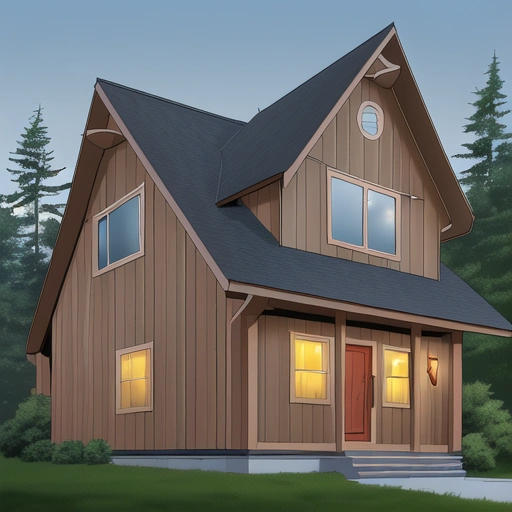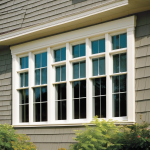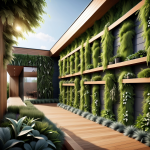Vinyl vs. Cedar Shake Siding: A Durability Comparison for Massachusetts Homes in 2025
The Siding Showdown: Vinyl vs. Cedar Shake in the Bay State
The quintessential New England aesthetic often conjures images of weathered cedar shake siding adorning charming colonial homes, a hallmark of Massachusetts architecture. However, as 2025 unfolds, homeowners in the Bay State are facing a pivotal decision: embracing the time-honored elegance of cedar shake or opting for the modern practicality of vinyl siding. This choice is no longer solely about aesthetics; it’s a strategic evaluation of siding durability in the face of increasingly volatile weather patterns and a keen understanding of long-term home improvement costs.
This article provides a detailed comparison, specifically tailored for Massachusetts homes, weighing the enduring charm of cedar against the resilient and budget-friendly nature of vinyl. We will explore the nuances of siding maintenance, the impact of Massachusetts weather, and the overall return on investment for each material, providing homeowners with the knowledge to make an informed decision for their home renovation or new construction project. Beyond curb appeal, the selection of siding significantly impacts a home’s value in the Massachusetts real estate market.
While cedar shake siding can enhance the perceived value of historic properties or those in upscale neighborhoods, its demanding maintenance schedule can deter potential buyers. Conversely, vinyl siding, known for its low maintenance and affordability, can be a selling point for first-time homebuyers or those seeking a hassle-free ownership experience. According to a recent survey by the Massachusetts Association of Realtors, homes with well-maintained siding, regardless of the material, tend to sell faster and at a higher price point.
Therefore, understanding the long-term implications of siding choice is crucial for maximizing property value in the competitive Massachusetts housing market. Furthermore, the evolving landscape of siding technology is reshaping homeowner preferences. Modern vinyl siding options now mimic the texture and appearance of natural wood, blurring the lines between traditional and contemporary aesthetics. Advancements in UV resistance and impact strength have also addressed some of the historical concerns about vinyl’s durability in harsh climates. Simultaneously, innovations in cedar shake preservation techniques, such as advanced sealants and improved installation methods, are extending the lifespan of this classic material. As Massachusetts homeowners navigate the complexities of home improvement, staying informed about these technological advancements is essential for making a siding decision that aligns with their budget, lifestyle, and long-term property goals. This article will delve into these advancements, providing a comprehensive overview of the latest trends in both vinyl and cedar shake siding for Massachusetts homes.
Vinyl Siding: The Affordable and Low-Maintenance Contender
Vinyl siding, composed primarily of polyvinyl chloride (PVC), has surged in popularity due to its affordability, ease of installation, and minimal maintenance requirements. Modern vinyl siding boasts enhanced UV resistance, impact strength, and color retention compared to its predecessors. In Massachusetts, where winters bring heavy snow and ice, and summers can be humid and hot, vinyl’s resistance to moisture and rot is a significant advantage. However, vinyl is susceptible to cracking in extreme cold and can fade over time, requiring eventual replacement.
The lifespan of quality vinyl siding in Massachusetts is typically 20-40 years, depending on the grade and installation quality. Recent advancements include insulated vinyl siding, which offers improved energy efficiency, further enhancing its appeal. For Massachusetts homeowners undertaking a home renovation project, vinyl siding presents a compelling option due to its cost-effectiveness. Initial siding costs are significantly lower compared to cedar shake siding, making it an attractive choice for budget-conscious homeowners. Furthermore, the ease of installation translates to lower labor costs, contributing to overall savings.
When evaluating siding durability, consider that while vinyl might not possess the same inherent longevity as meticulously maintained cedar, its resistance to common problems like insect infestation and water damage provides long-term value, especially in damp coastal areas of Massachusetts. Beyond the upfront savings, the low siding maintenance requirements of vinyl are a major draw for busy Massachusetts homeowners. Unlike cedar shake siding, which demands regular staining, sealing, and cleaning to prevent rot and decay, vinyl siding requires only occasional washing with soap and water to maintain its appearance.
This translates to significant savings in both time and money over the lifespan of the siding. For example, a homeowner with cedar shake might spend several weekends a year on maintenance, plus the cost of materials. With vinyl siding, that time can be spent enjoying their home, rather than constantly working on it. This reduced maintenance burden is a key factor driving the increasing popularity of vinyl siding in the Massachusetts real estate market. Moreover, the evolving aesthetics of vinyl siding have broadened its appeal.
No longer limited to basic, flat panels, modern vinyl siding is available in a wide array of colors, textures, and profiles, including options that mimic the look of natural wood or even cedar shake siding. This allows homeowners to achieve a desired aesthetic without the high cost and maintenance associated with natural materials. Insulated vinyl siding, a premium option, not only enhances energy efficiency but also provides added impact resistance and sound dampening, further solidifying vinyl’s position as a versatile and practical choice for Massachusetts homes seeking a balance of affordability, durability, and aesthetic flexibility.
Cedar Shake Siding: Timeless Beauty with a Maintenance Commitment
Cedar shake siding, crafted from natural cedar wood, offers a distinct aesthetic appeal prized for its rustic charm and natural variations. The natural texture and warm tones of cedar shake siding contribute to a classic New England look, highly sought after in Massachusetts real estate. Cedar contains natural oils that provide inherent resistance to insects and decay, making it a traditionally favored material. However, this natural protection is not foolproof, and the harsh realities of Massachusetts weather demand diligent upkeep.
In Massachusetts, cedar shake requires regular maintenance, including cleaning, staining, or sealing, to combat moisture absorption, fungal growth, and UV damage. Neglecting maintenance can lead to warping, cracking, and rot, significantly shortening its lifespan. While properly maintained cedar shake can last 30-50 years, the ongoing costs and labor associated with upkeep make it a more demanding option for Massachusetts homeowners. Furthermore, cedar shake is more susceptible to fire damage than vinyl, a factor to consider in areas prone to wildfires.
Homeowners considering cedar shake siding should factor in the cost of professional inspection and maintenance. Experts recommend annual inspections to identify potential problems early, preventing costly repairs down the line. Staining or sealing, typically required every 3-5 years, can cost several thousand dollars depending on the size of the home. Moreover, the labor involved in these tasks can be significant, making DIY maintenance a time-consuming endeavor. The Massachusetts Building Code also mandates specific fire-resistant treatments for cedar shake in certain areas, adding to the overall expense.
These added costs can quickly escalate, making cedar shake a considerably more expensive option than vinyl siding over the long term. Beyond the financial implications, the environmental impact of cedar shake siding is also a growing concern for environmentally conscious homeowners in Massachusetts. While cedar is a renewable resource, the harvesting and processing of cedar wood can contribute to deforestation and habitat loss if not managed sustainably. Furthermore, the chemicals used in some stains and sealants can have negative environmental consequences.
Vinyl siding, while made from PVC, is often recyclable and has a longer lifespan than poorly maintained cedar shake, potentially reducing its overall environmental footprint. Therefore, homeowners must carefully weigh the aesthetic appeal of cedar shake against its environmental impact and the availability of sustainably sourced materials when making their siding decision for their Massachusetts homes. Ultimately, the choice hinges on balancing personal preferences with practical considerations regarding siding durability, siding costs, and siding maintenance.
The Massachusetts Climate Factor: Weathering the Storm
Massachusetts weather presents unique challenges to siding durability. The freeze-thaw cycle, a relentless feature of New England winters, causes expansion and contraction in both vinyl and cedar shake siding, leading to stress and potential damage over time. Vinyl, while lauded for its water resistance, can become brittle in extreme cold, increasing the risk of cracking from impacts from falling branches or even hail – a common concern for Massachusetts homes. Cedar shake, if not properly sealed and maintained, can absorb moisture, leading to rot and mold growth, particularly on north-facing walls and shaded areas where sunlight is limited.
Coastal regions, prevalent in eastern Massachusetts, face the added challenge of salt spray, which can accelerate the degradation of both materials, corroding fasteners and eroding the siding’s surface. Choosing a siding material that is specifically designed to withstand these conditions is crucial for Massachusetts homeowners seeking long-term value and curb appeal. For example, thicker gauge vinyl siding, often marketed as “impact-resistant,” offers greater protection against physical damage and is a worthwhile investment in areas prone to severe weather.
Similarly, pre-treated cedar shake siding, infused with preservatives and water repellents, provides enhanced protection against moisture and insect infestation, mitigating the risks associated with the region’s humid summers and wet winters. Homeowners should also consider the siding’s wind resistance rating, particularly in coastal areas prone to strong storms; opting for siding with a higher wind rating can prevent costly repairs down the line. Beyond material selection, proper installation is paramount to ensuring siding durability in the face of Massachusetts’ harsh climate.
According to local home improvement experts, improper nailing or inadequate flashing around windows and doors can create entry points for moisture, leading to hidden damage and premature siding failure. Investing in a reputable contractor with experience in installing siding on Massachusetts homes is essential to ensure that the siding is properly sealed and protected from the elements. Regular inspections, particularly after severe weather events, can also help identify and address potential problems early on, preventing minor issues from escalating into major repairs. This proactive approach to siding maintenance will ultimately extend the lifespan of the siding and protect the home from the damaging effects of the Massachusetts climate.
Cost Analysis: Upfront Investment vs. Long-Term Expenses
Beyond the initial material cost, homeowners must consider the long-term expenses associated with each siding option. Vinyl siding typically presents a lower upfront investment and requires minimal maintenance, translating to reduced long-term expenditures. Cedar shake siding, while potentially boasting a longer lifespan with meticulous care, accrues significant maintenance costs over its lifetime. These costs encompass regular cleaning to combat mold and mildew prevalent in Massachusetts’ humid climate, periodic staining or sealing to protect against moisture damage and UV degradation, and potential repairs due to insect infestation or wood rot.
For example, a homeowner in Barnstable might spend several thousand dollars every few years to properly maintain cedar shake, while vinyl siding on a similar-sized home would require only occasional washing. Furthermore, accurately assessing the total cost of ownership necessitates factoring in potential increases in homeowner’s insurance. Due to its greater susceptibility to damage from wind, hail, and moisture, cedar shake siding often results in higher insurance premiums compared to vinyl siding. This difference can be particularly pronounced in coastal areas of Massachusetts prone to severe weather events.
Conversely, energy efficiency should also be a consideration. While both vinyl and cedar shake offer some insulation value, cedar can provide slightly better thermal performance, potentially leading to minor savings on heating and cooling bills. However, these savings might not offset the higher maintenance costs. Finally, the environmental impact of each material warrants careful consideration. Vinyl production relies on PVC, a petroleum-based product, raising concerns about resource depletion and potential pollution. Cedar, on the other hand, is a renewable resource.
However, the sustainability of cedar shake siding hinges on responsible forestry practices, including selective harvesting and reforestation efforts. Homeowners should seek out cedar products certified by organizations like the Forest Stewardship Council (FSC) to ensure they are sourced from sustainably managed forests. Moreover, the disposal of old siding should be considered; vinyl siding can be recycled, while cedar shake can decompose naturally, although it may contribute to landfill volume if not properly managed. Ultimately, Massachusetts homeowners undertaking a home renovation project must weigh these multifaceted cost and environmental factors to make an informed decision aligned with their budget, lifestyle, and environmental values when choosing between vinyl siding and cedar shake siding.
The Verdict: Balancing Aesthetics and Practicality in 2025
In 2025, the choice between vinyl and cedar shake siding for Massachusetts homes remains a complex decision, balancing aesthetic preferences with practical considerations. While cedar shake offers undeniable curb appeal and a connection to New England’s architectural heritage, its high maintenance demands and susceptibility to moisture damage make it a more demanding investment, particularly in the face of increasingly unpredictable Massachusetts weather patterns. Vinyl siding, with its affordability, low maintenance, and improved durability, presents a compelling alternative for homeowners seeking a long-lasting and cost-effective solution.
Ultimately, the best choice depends on individual priorities, budget constraints, and a realistic assessment of the homeowner’s willingness to commit to ongoing siding maintenance. Recent data from Massachusetts real estate market analysis indicates a growing trend towards vinyl siding, especially among first-time homebuyers and those seeking home renovation projects with a focus on long-term value. A 2024 survey by the Massachusetts Association of Home Inspectors revealed that homes with well-maintained vinyl siding showed a slightly higher resale value compared to homes with poorly maintained cedar shake, highlighting the importance of upkeep in preserving property value.
This shift reflects a growing awareness of the total cost of ownership, where the lower upfront siding costs and reduced maintenance of vinyl often outweigh the perceived aesthetic benefits of cedar shake, especially when factoring in annual cleaning, staining, and potential repairs due to insect infestation or water damage. Furthermore, advancements in vinyl siding technology have significantly narrowed the aesthetic gap between vinyl and cedar shake. Modern vinyl siding is now available in a wide array of textures, colors, and profiles, including options that convincingly mimic the look of natural cedar.
Some manufacturers even offer vinyl siding with enhanced shadow lines and grain patterns, creating a more authentic wood-like appearance. This allows homeowners to achieve a similar aesthetic appeal without the associated maintenance burden. For example, CertainTeed’s Cedar Impressions line offers a polymer shake siding that replicates the look of cedar but requires significantly less upkeep. This innovation addresses a key concern for homeowners who appreciate the classic New England look but prioritize practicality and long-term siding durability.
Ultimately, homeowners should carefully weigh their options, considering not only the initial siding costs but also the long-term implications for their budget and lifestyle. Consulting with local Massachusetts siding contractors who are experienced in both vinyl and cedar shake installation can provide valuable insights into the specific challenges and benefits of each material in the regional climate. Obtaining multiple quotes and thoroughly researching the warranty options offered by different manufacturers is also crucial for making an informed decision. By carefully evaluating these factors, Massachusetts homeowners can confidently choose the siding option that best suits their needs and enhances the value and curb appeal of their homes for years to come.


